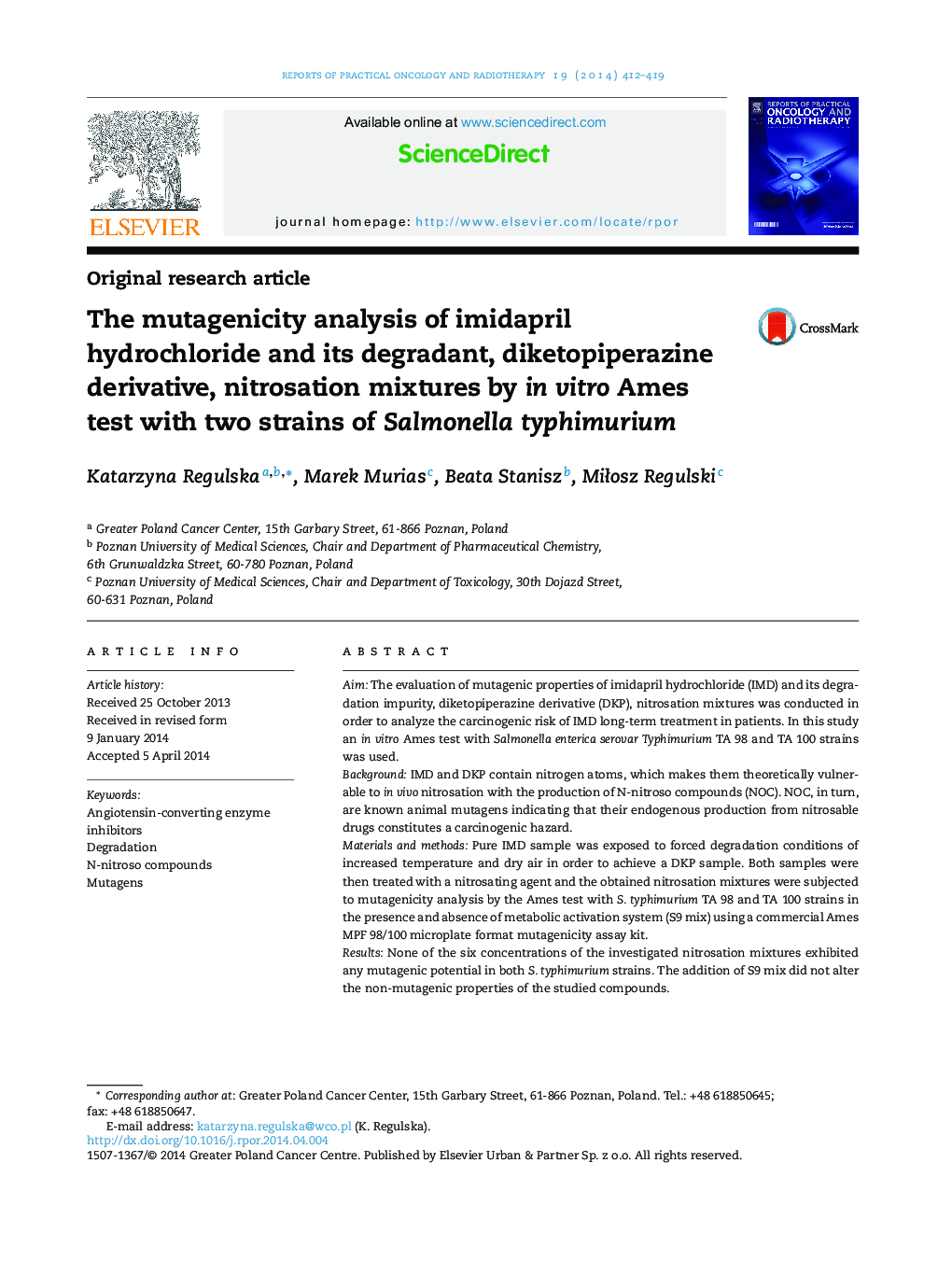| Article ID | Journal | Published Year | Pages | File Type |
|---|---|---|---|---|
| 1855397 | Reports of Practical Oncology & Radiotherapy | 2014 | 8 Pages |
AimThe evaluation of mutagenic properties of imidapril hydrochloride (IMD) and its degradation impurity, diketopiperazine derivative (DKP), nitrosation mixtures was conducted in order to analyze the carcinogenic risk of IMD long-term treatment in patients. In this study an in vitro Ames test with Salmonella enterica serovar Typhimurium TA 98 and TA 100 strains was used.BackgroundIMD and DKP contain nitrogen atoms, which makes them theoretically vulnerable to in vivo nitrosation with the production of N-nitroso compounds (NOC). NOC, in turn, are known animal mutagens indicating that their endogenous production from nitrosable drugs constitutes a carcinogenic hazard.Materials and methodsPure IMD sample was exposed to forced degradation conditions of increased temperature and dry air in order to achieve a DKP sample. Both samples were then treated with a nitrosating agent and the obtained nitrosation mixtures were subjected to mutagenicity analysis by the Ames test with S. typhimurium TA 98 and TA 100 strains in the presence and absence of metabolic activation system (S9 mix) using a commercial Ames MPF 98/100 microplate format mutagenicity assay kit.ResultsNone of the six concentrations of the investigated nitrosation mixtures exhibited any mutagenic potential in both S. typhimurium strains. The addition of S9 mix did not alter the non-mutagenic properties of the studied compounds.ConclusionsThe nitrite treatment of both studied compounds has no impact on their mutagenic properties under the conditions of the present studies. Hence, IMD and DKP nitrosation mixtures are classified as non-mutagens in this test.
